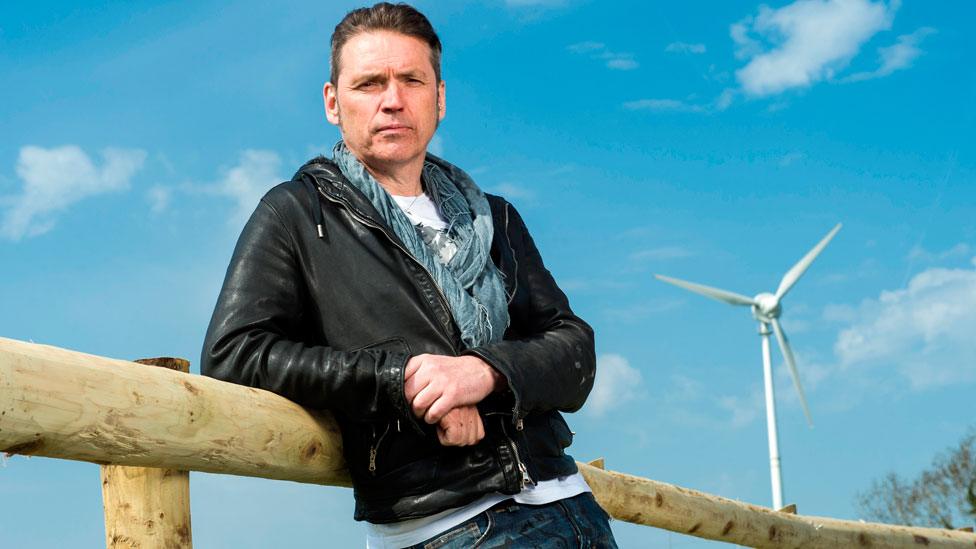Ecotricity chief says Swansea tidal lagoon 'too costly'
- Published
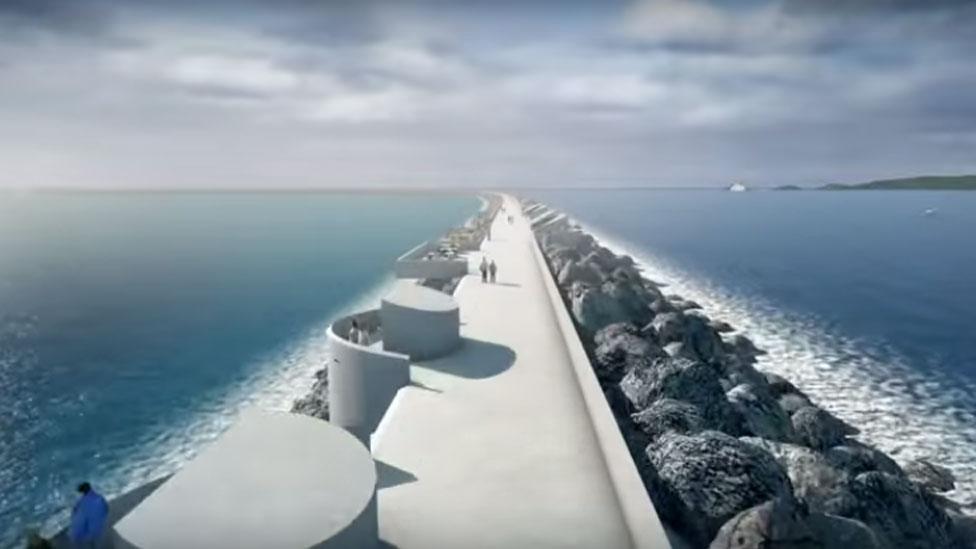
A leading renewable energy company has written to the UK Energy Secretary Greg Clark attacking plans for a £1.3bn Swansea Bay tidal lagoon.
Ecotricity believes tidal energy would be cheaper to produce completely offshore.
It said it was also important to be "business-like" and open up the process to other companies from the first stage.
The UK government said it was still assessing plans for the Swansea scheme.
Ecotricity points to Solway Energy Gateway, external in Cumbria, a tidal lagoon project that would sit in the estuary rather than being attached to land, like lagoon proposals for Swansea, Cardiff and Colwyn Bay.
It believes that type of tidal energy project could produce energy for a quarter of the price and also be better for the environment.
Ecotricity's founder is millionaire Dale Vince, 56, who has been in renewable energy for more than 20 years and is also owner of League Two Forest Green Rovers, hailed as football's first vegan club.
His Gloucestershire-based company became the first to sell renewable energy into the National Grid and it now has 200,000 domestic customers.
Charles Hendry's independent report, external in January supported the Swansea project as a first test of the technology and said tidal energy would make a "strong contribution" to the UK's supply.
Mr Vince has been previously critical of the Swansea lagoon plans, but has now gone much further in his arguments.
He believes the Swansea lagoon is more of a regeneration project - and should be paid for by the tax-payer, not bill payers.
Ecotricity boss Dale Vince questions the price for electricity Swansea Bay's tidal lagoon would charge.
In a letter seen by BBC Wales, Mr Vince also calls for politicians to support an emerging tidal lagoon industry - and to open it up to competition and to also consider offshore lagoon projects.
"I believe in all forms of renewable energy - we want the government to support it and tidal lagoons," he said.
"But what we're saying is that there are more cost effective ways of building tidal lagoons, and places to build them in, and they should have a competitive tender for that, to get value for money for the public, because the cost will be added to our bills; it's important we do it properly."
Mr Vince also said that offshore lagoons would be better for the environment.
The Angling Trust is opposing the Swansea project because of the impact it claims there will be on fish trying to swim upstream.
It says an offshore lagoon is likely to have a less damaging effect.
Tidal Lagoon Power, behind the plans, said: "Part of Swansea Bay Tidal Lagoon's role as a pathfinder project is to stimulate a competitive market for the future.
"It's great that other developers are starting to think about the projects they may bring forward for consideration. We wish them every success."
'Important responsibility'
Prof Roger Falconer, of Cardiff University's school of engineering, supports the Swansea pathfinder lagoon in principle but has concerns about the design.
"It is essential that the (or any) pathfinder project is monitored before and after construction to enable larger schemes to be built subsequently with confidence," he said.
He also supports the Hendry recommendation that future tidal schemes after Swansea should be offered to open tender and competition.
The energy secretary said the UK government had an "important responsibility" to make sure that renewable technologies proceeded at a price that was reasonable to consumers who pay through their bills.
"That is being assessed and I will report to the house when that assessment is finished," Mr Clark told MPs on Tuesday.
- Published10 September 2017
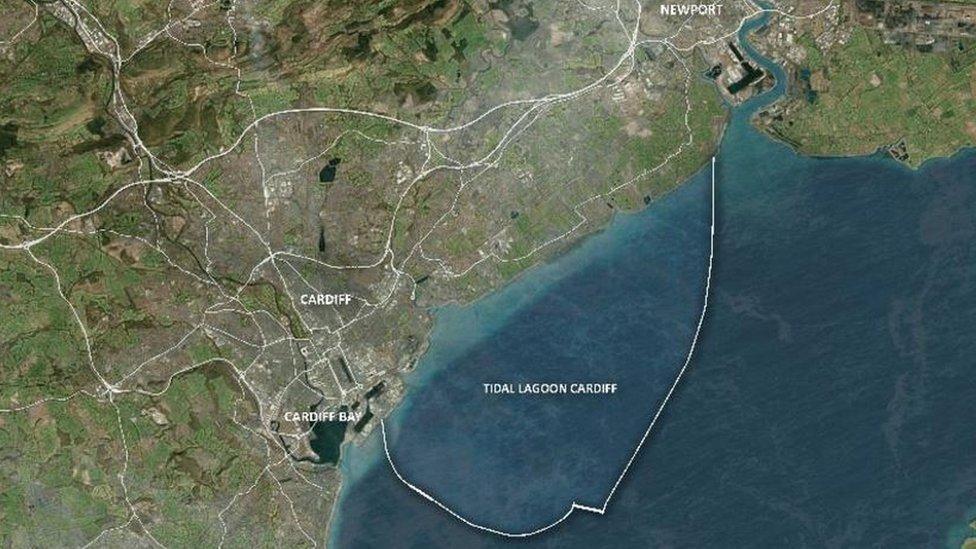
- Published4 September 2017
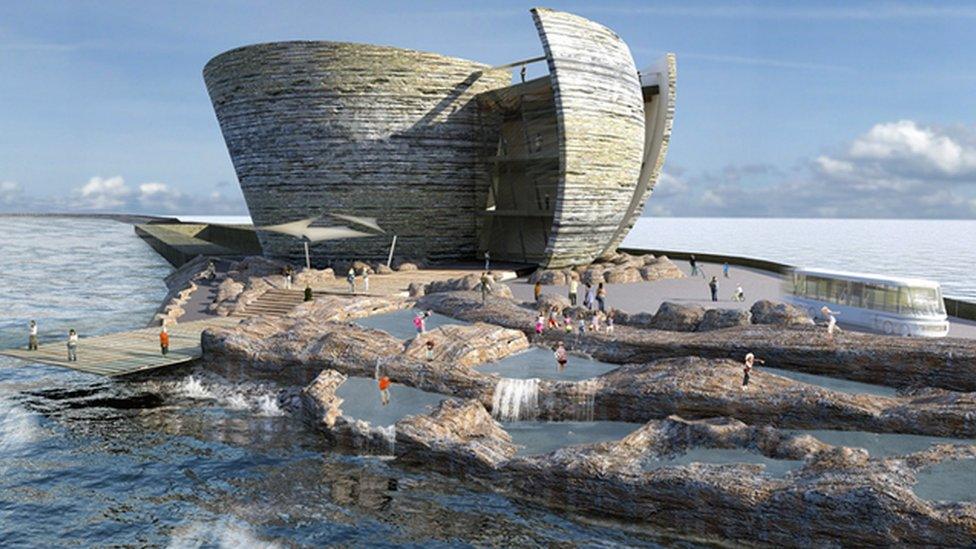
- Published12 January 2017

- Published12 January 2017
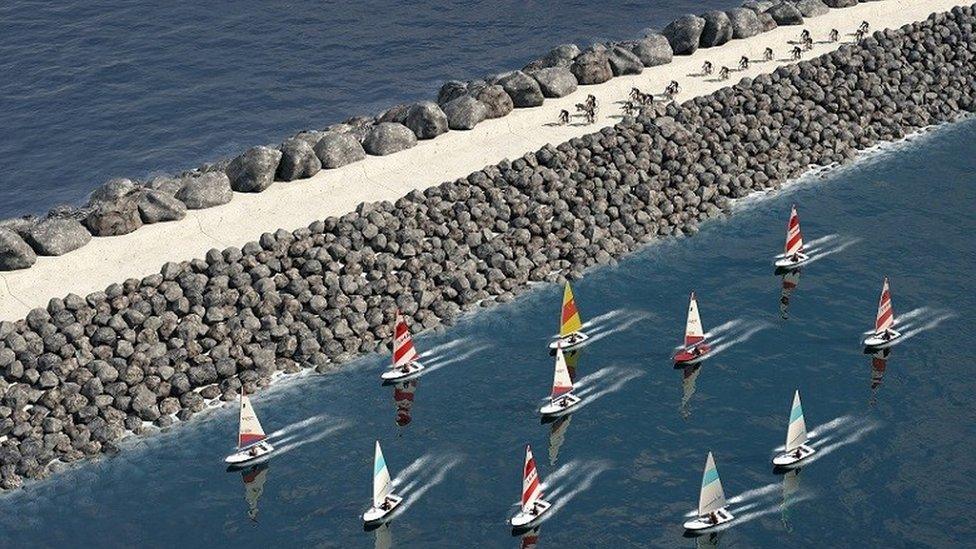
- Published26 February 2016
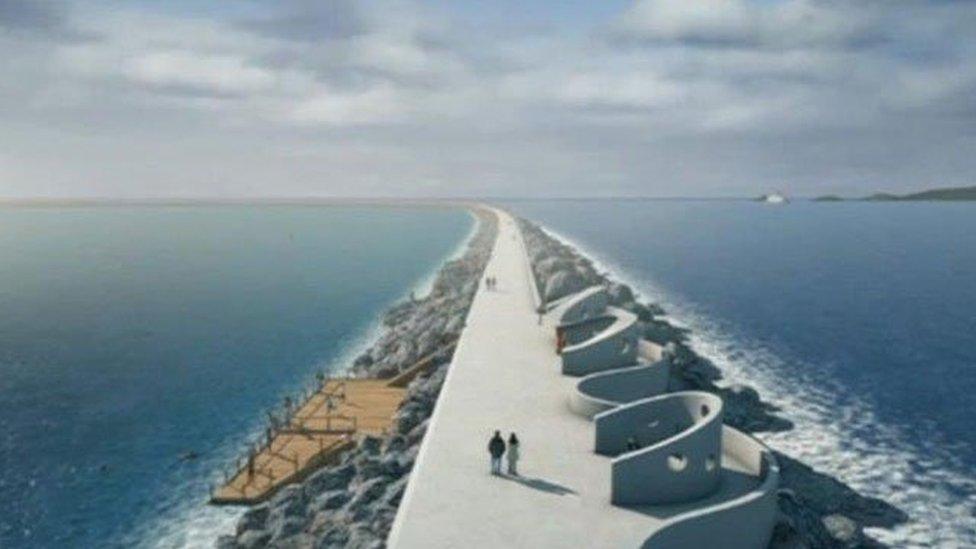
- Published25 February 2016
